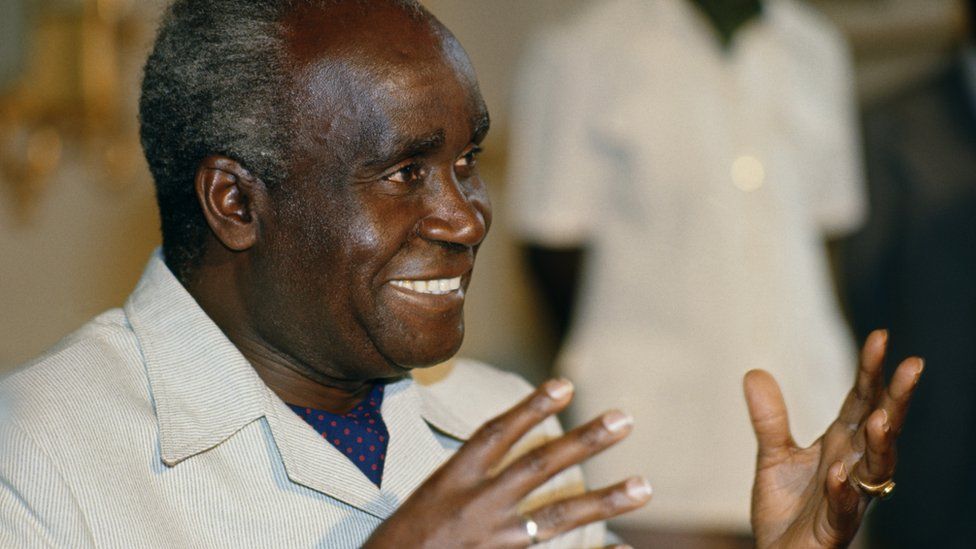I was shocked to find out on the 97th birthday of Kenneth Kaunda – Zambia’s first president and a giant in the fight against colonialism – that some people had never heard of him.
I had posted my birthday greeting to the nonagenarian on social media on 28 April with the tag line: “The only African independence leader from the 1960s still alive.”
Many celebrated. Other were astonished, saying: “I didn’t realise he was still alive.”
But to be honest, those under the age of the 30 were clueless.
For someone who grew up in the 1960s in Sierra Leone, this was difficult to fathom.
I was part of a special generation of Africans observing the emergence of colonial states on the continent into independent nations.
UK Prime Minister Harold Macmillan, fresh from visiting several British African colonies, had delivered his now-famous “Wind of Change” speech in Cape Town to South Africa’s all-white parliament on 3 February 1960.
By the following year, 17 African countries had gained independence.
At school my classmates and I could proudly reel off the names of the leader of every independent African nation, including Milton Margai of Sierra Leone, Dawda Jawara of The Gambia, Jomo Kenyatta of Kenya, Patrice Lumumba of Congo, Ahmed Sekou Touré of Guinea, Modibo Keïta of Mali, Léopold Senghor of Senegal – as well as Mr Kaunda.
Egg and milk promise
Kaunda, the youngest of eight children, was a school teacher before joining the independence struggle.
This is when he became known for his guitar playing, composing liberation songs and travelling the country to drum up support for the campaign against colonial rule.
He went on to become Zambia’s founding president at the age of 40.
His wish, he said, was for Zambians to have an egg on their table for breakfast every morning, a pint of milk – and for every Zambian to have a pair of shoes on their feet.
Popularly known as KK, during his presidency he was a fierce critic of apartheid South Africa and white-minority rule in Rhodesia, now Zimbabwe – and he allowed groups fighting these regimes, like the African National Congress (ANC), to make Zambia their base.
To begin with he made huge strides towards improving the lot of Zambians, but betrayed the promise of democracy by introducing a one-party state in 1973.
Mr Kaunda was the only candidate in elections in 1978, 1983 and 1987 – scoring more than 80% of the vote each time.
He must have been too embarrassed to register 100%.
Even within his own party, he changed the rules to keep getting selected as the only candidate.
Eventually, Zambians felt Mr Kaunda had overstayed his time in office and voted him out in 1991 after mass protests forced him to reintroduce multi-party elections.
Dreams forgotten
In the three decades since the rush and joy of independence, the continent had become awash with dictatorships – which may explain why some of its post-colonial leaders are no longer remembered by a younger generation.
Some were assassinated or deposed in coups, others had forgotten the dreams of people and the promises made to them.
Africa still has leaders who have been in power for more than 20 or 30 years.
Some have been in power for almost 40 years, like Cameroon’s President Paul Biya. He is only the second president Cameroon has had since independence from France in the 1960s.
Perhaps it is because of this legacy that men who should be lionised are largely forgotten.
And it makes me wonder what is taught in African history classes today.
Surely Mr Kaunda – who since leaving office has largely kept out of politics and has devoted much of his energy to fighting HIV after losing one of his sons to Aids in the late 1980s – is someone who ought not to be forgotten.
He is a living reminder of the continent’s history – good and bad – and we can learn from both.

Leave a Reply